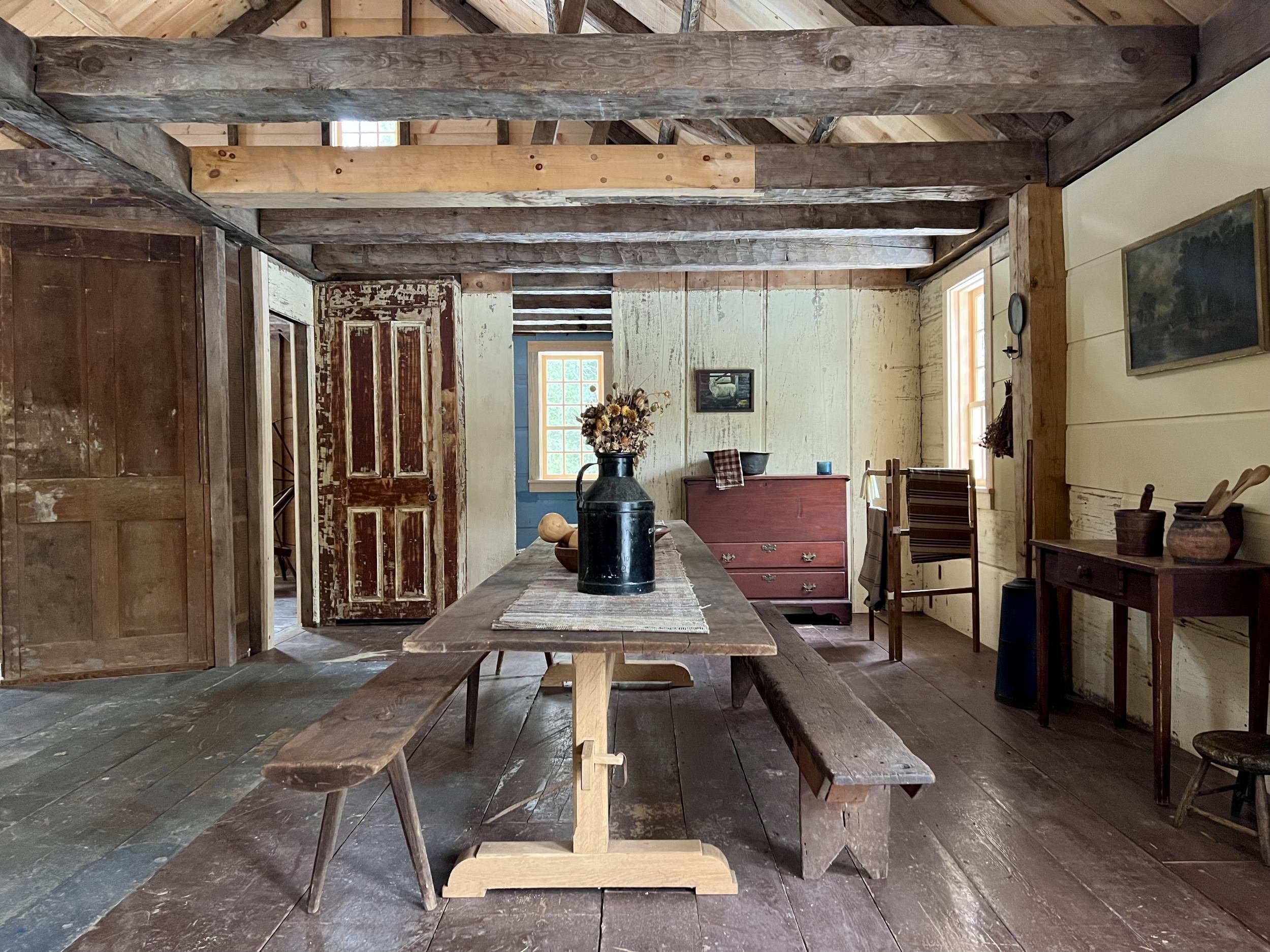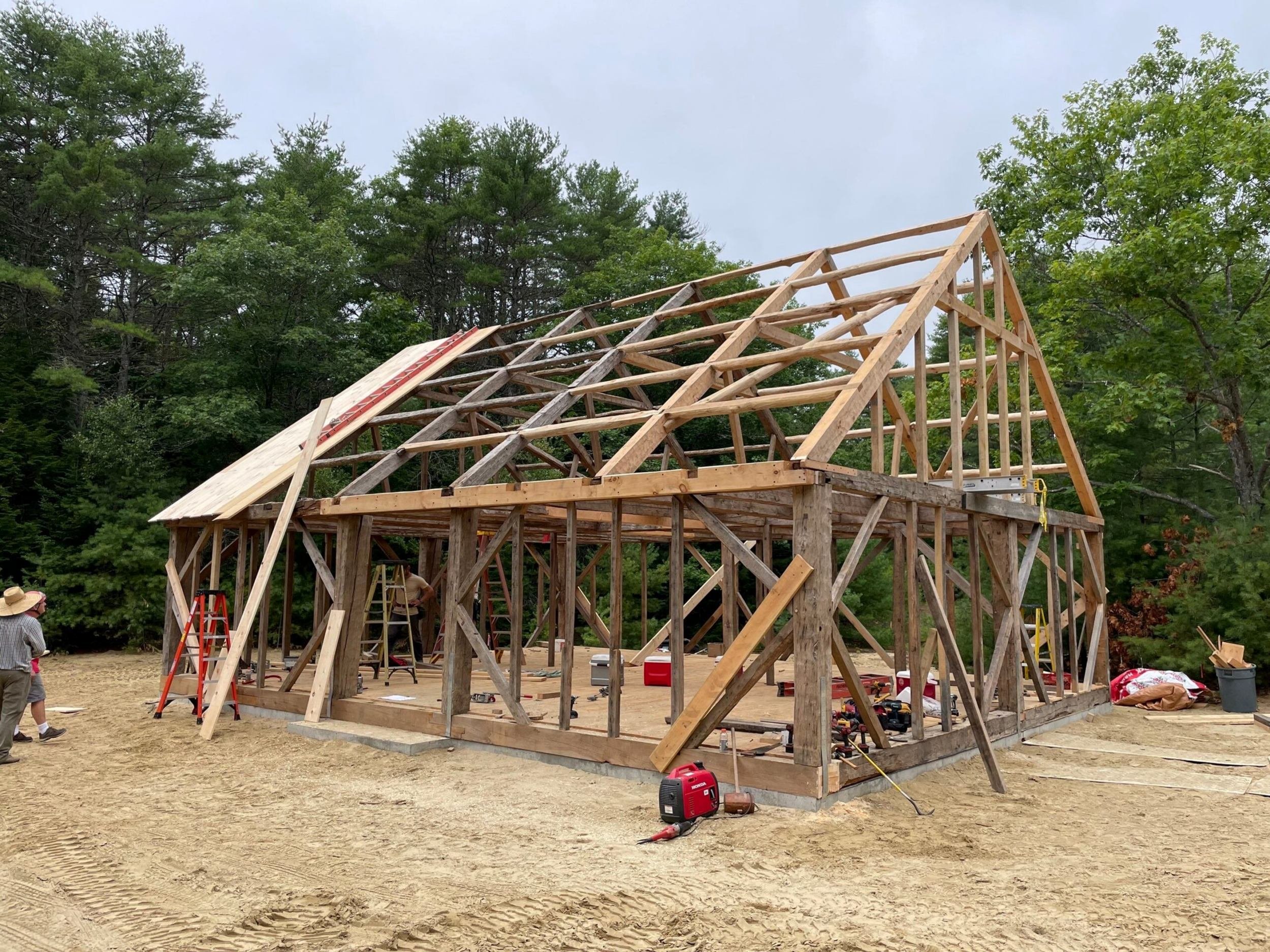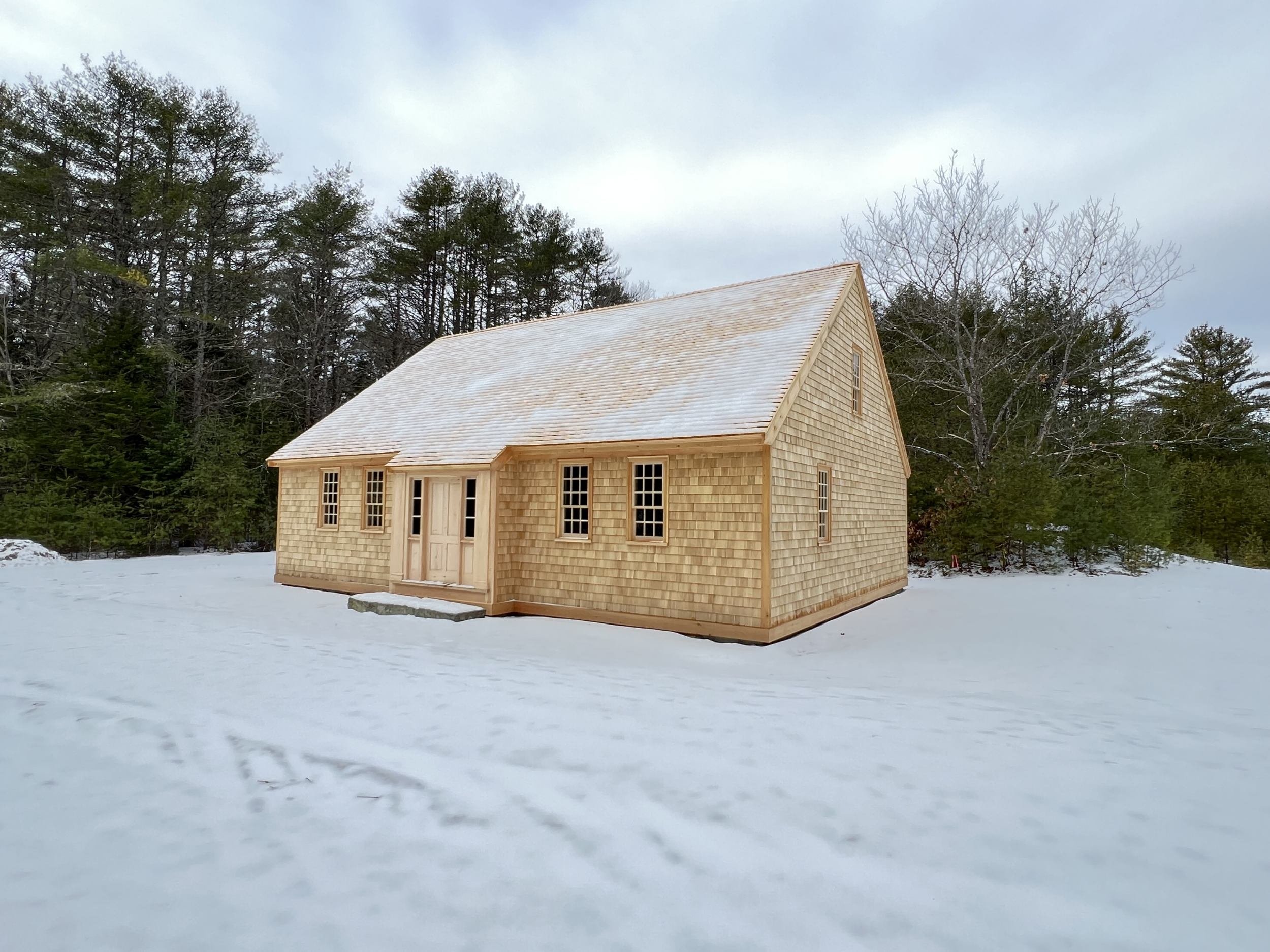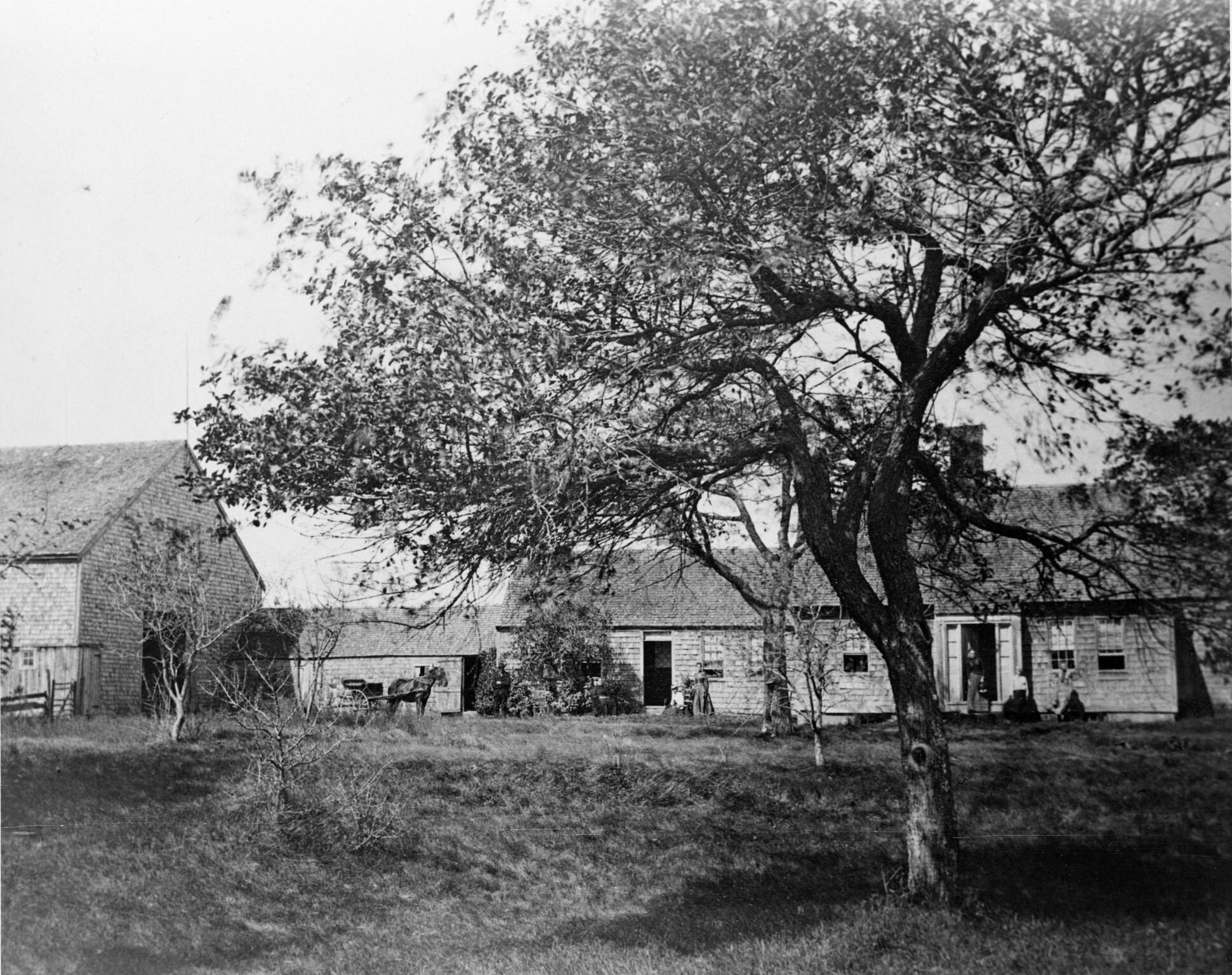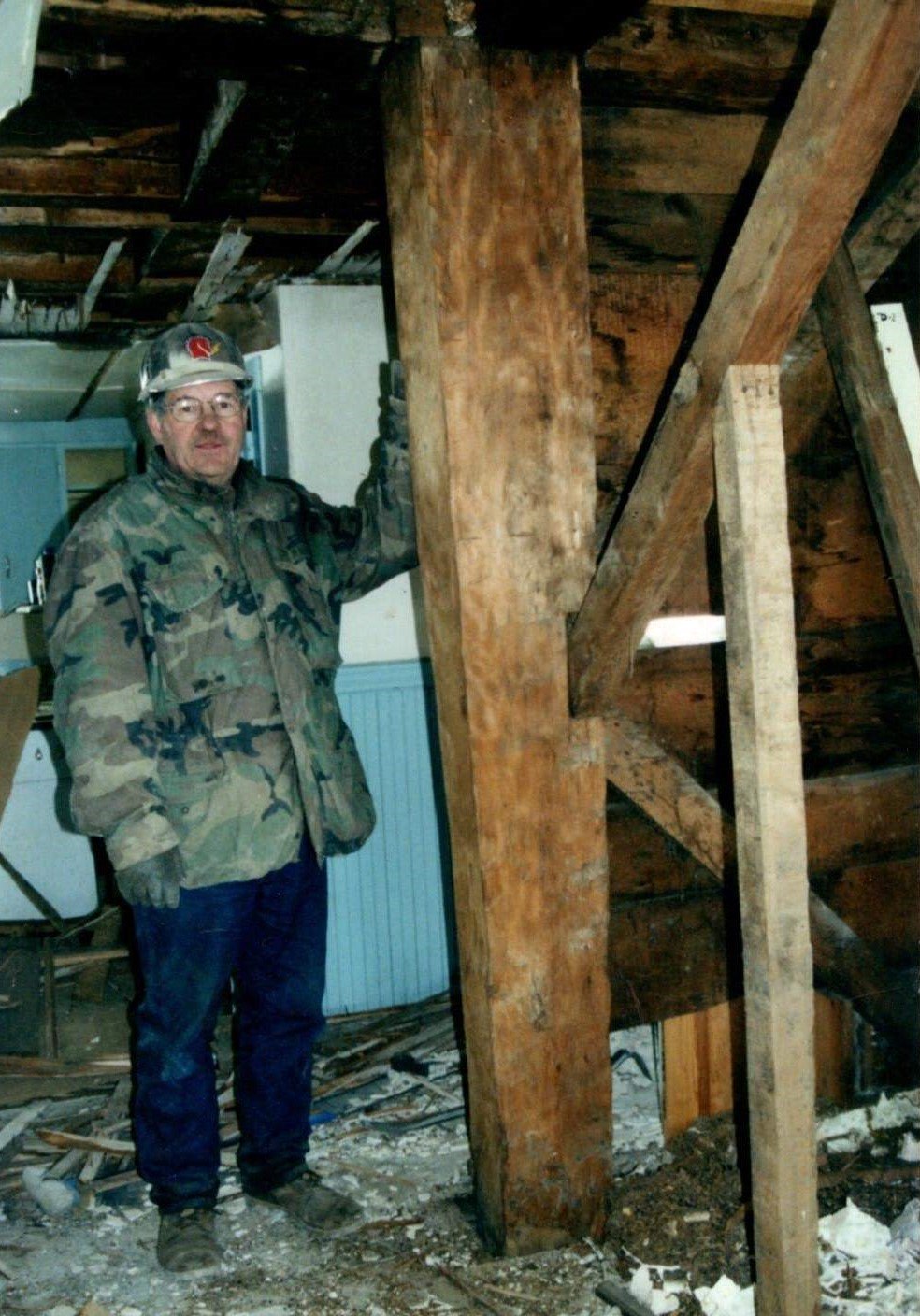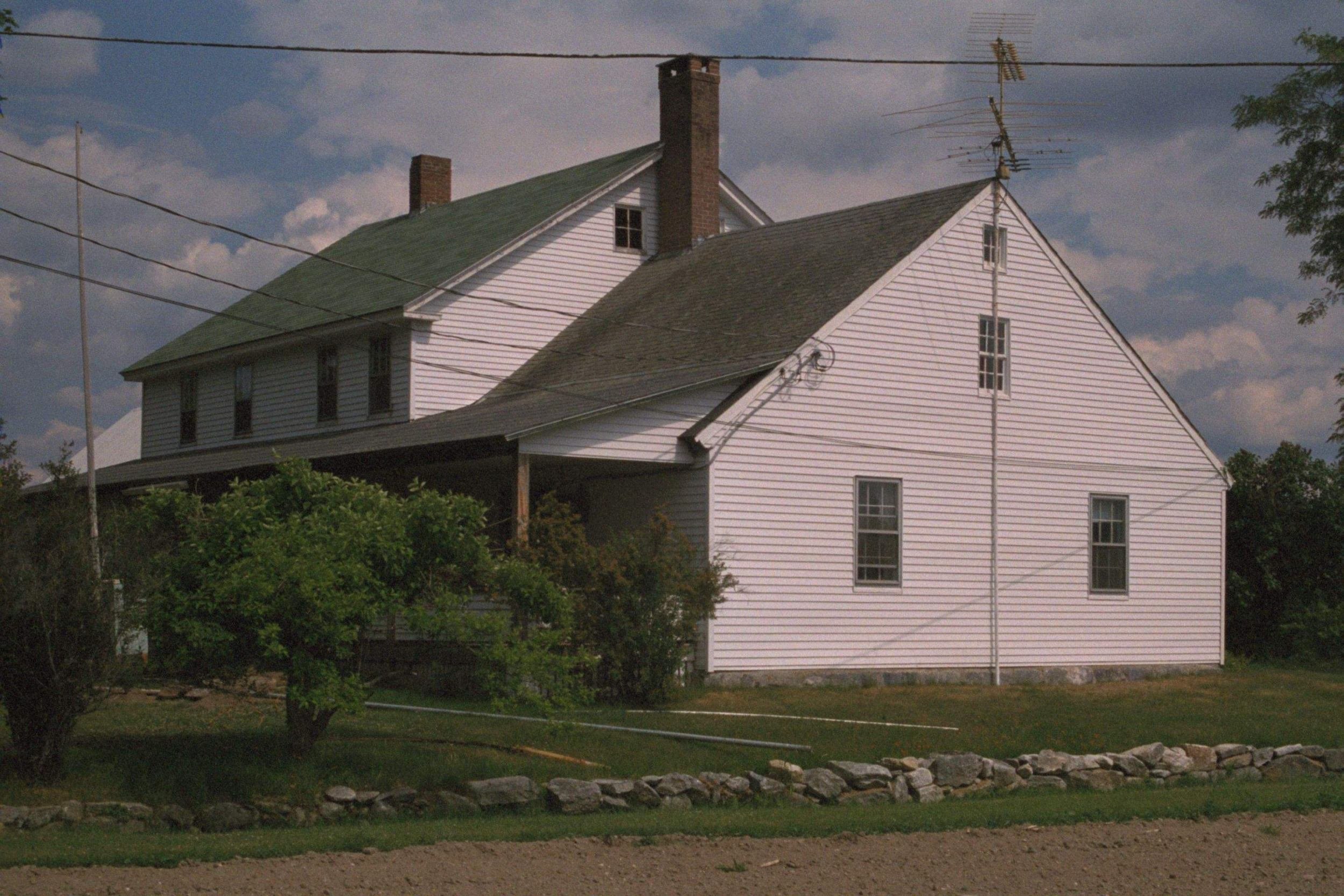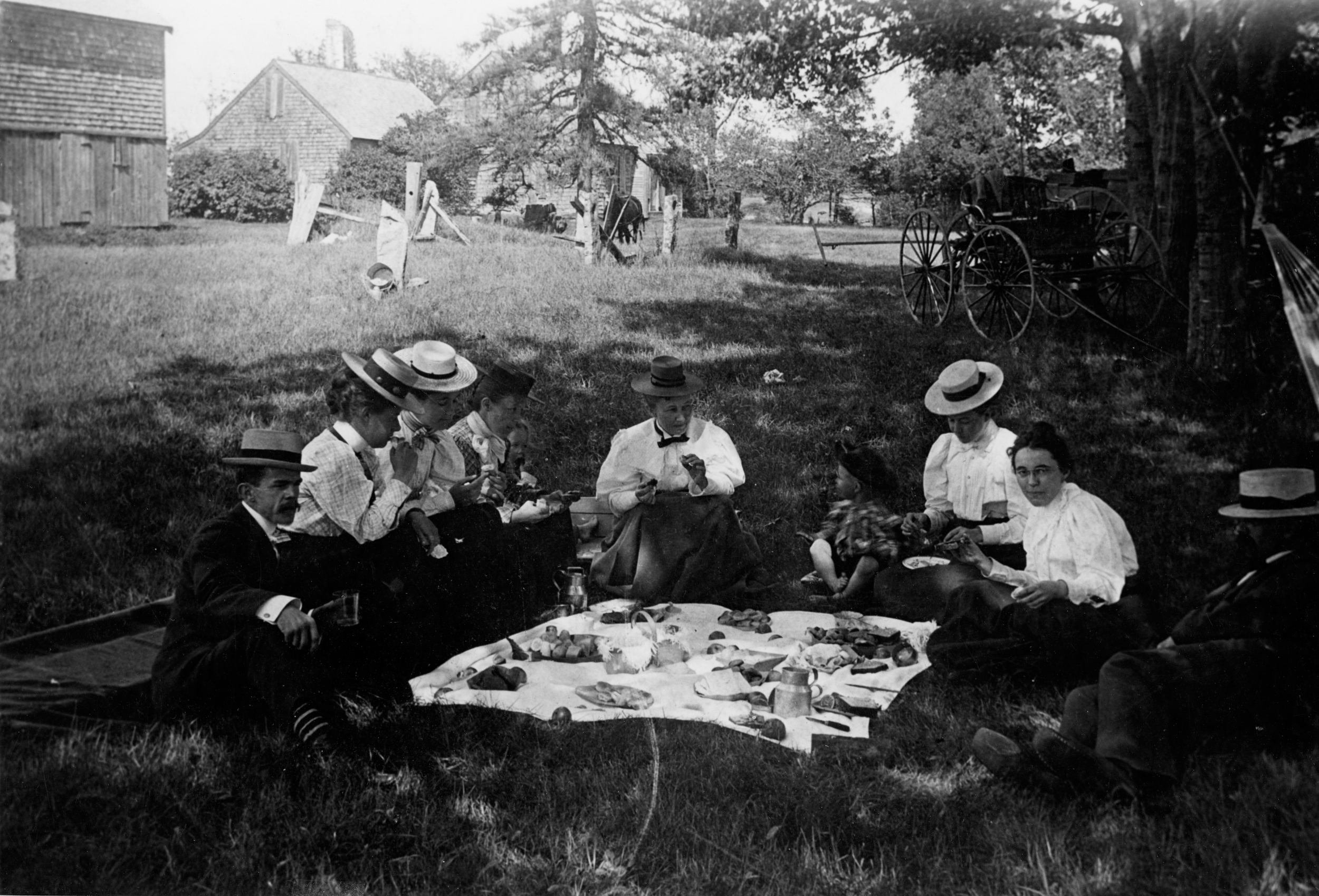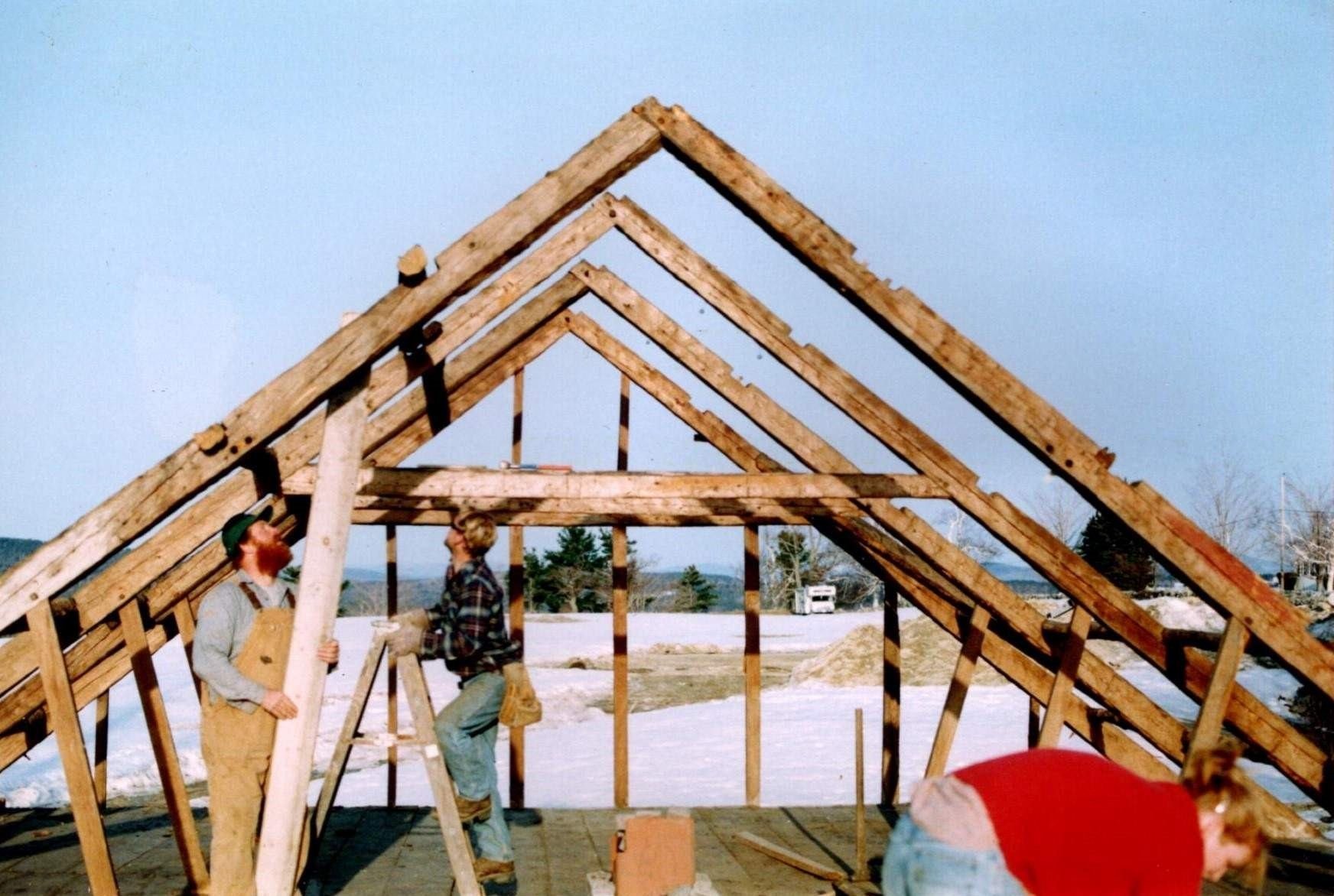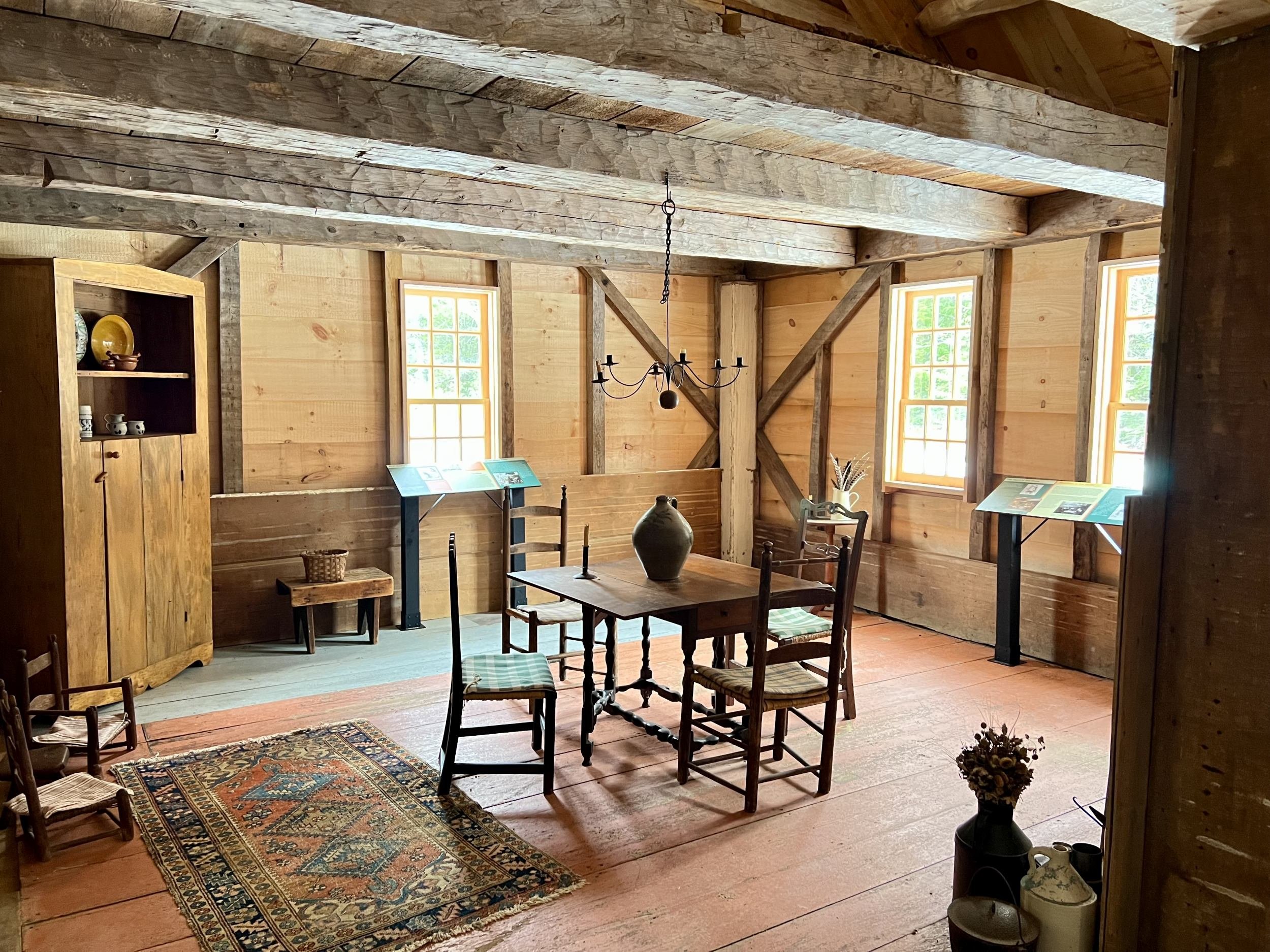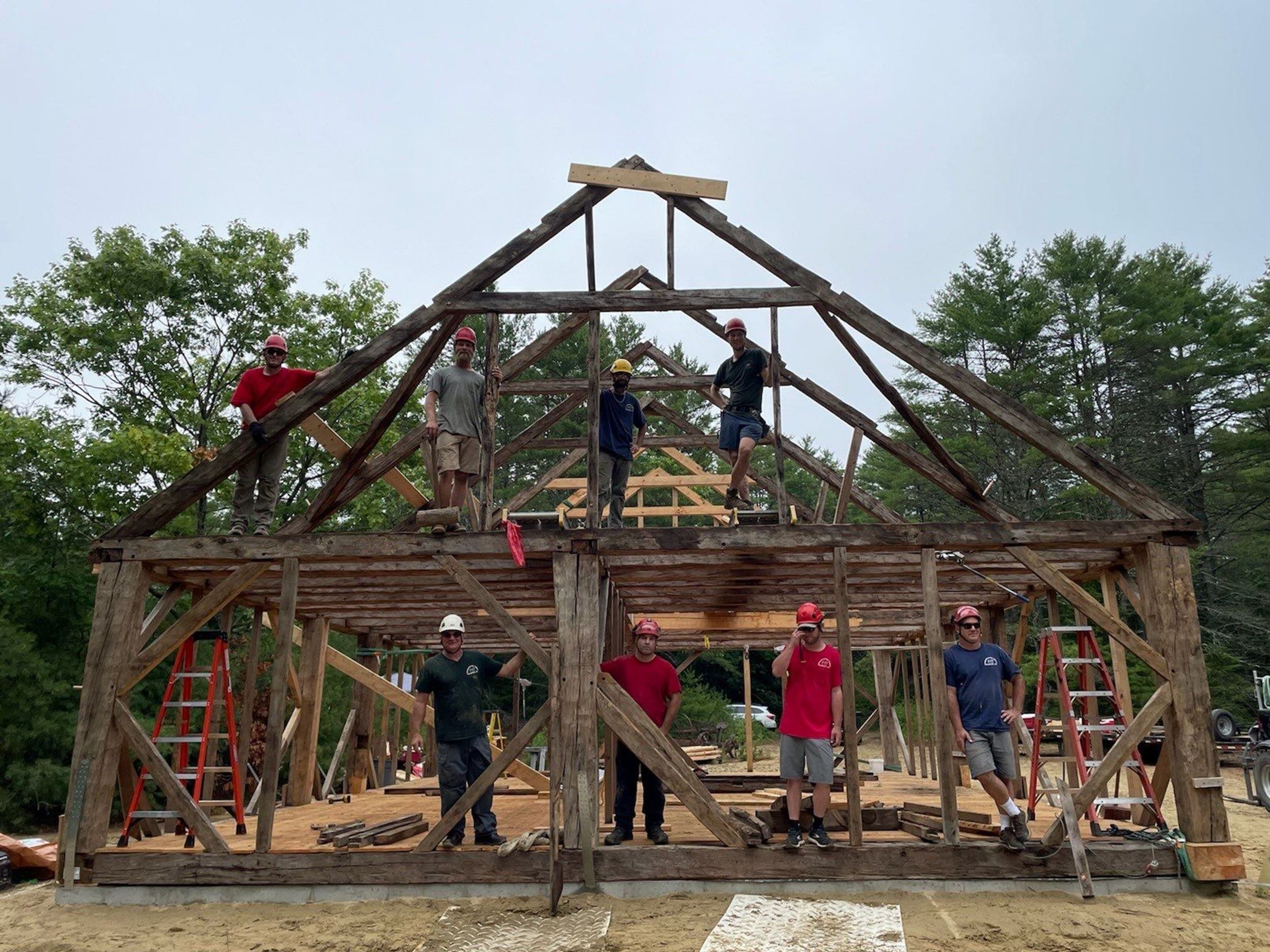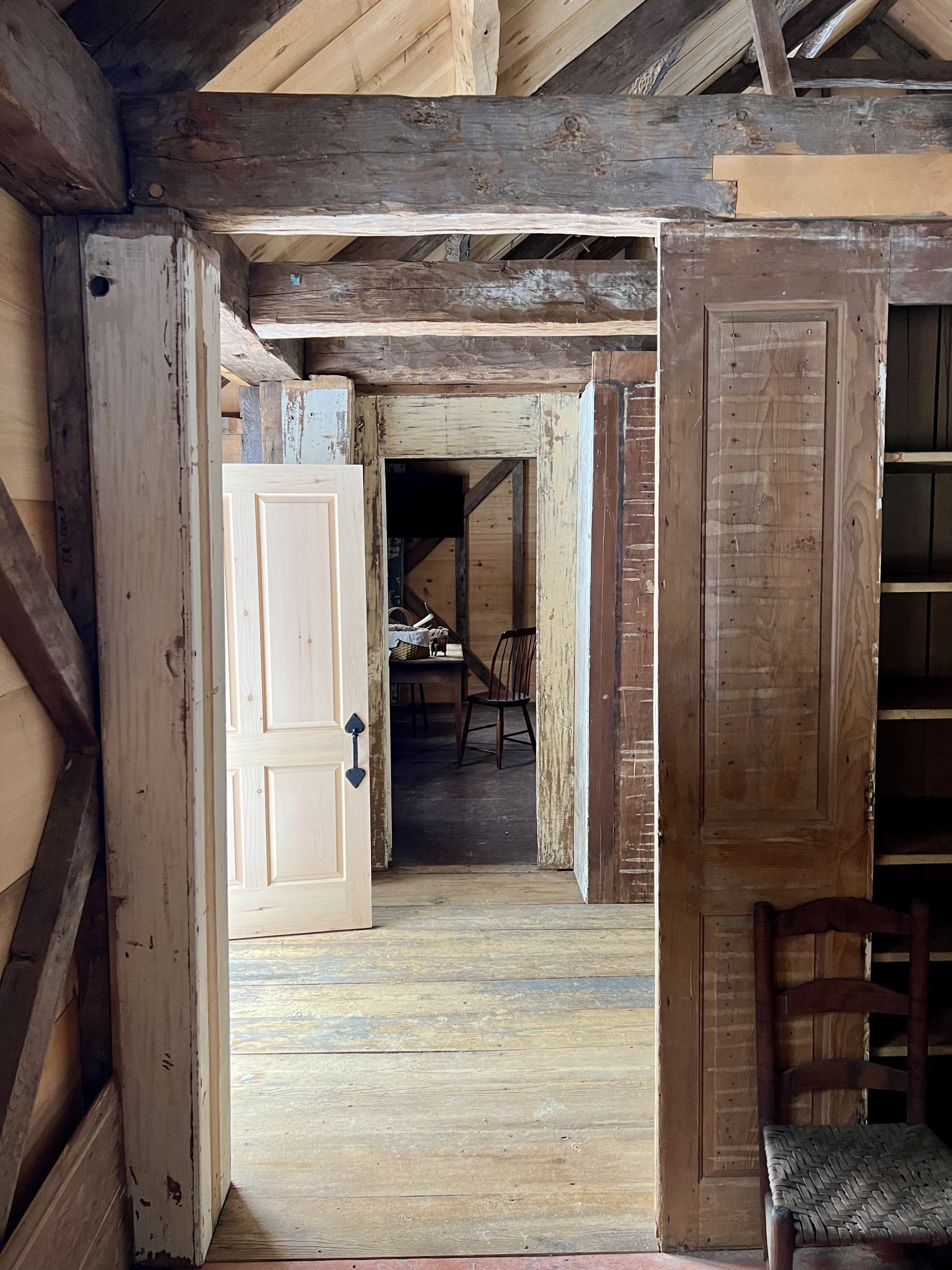Since purchasing the Desert of Maine property in 2018, Mela Jones and Doug Heestand have wanted to tell the full story of the site–from its origins as a working farm to a 20th century roadside attraction. Through intensive research, Mela learned that John and Abigail Tuttle were likely the first family to farm the land in 1821. Over the years, a combination of intensive logging, hay farming, and sheep grazing, by the Tuttle’s and others, led to the intense erosion that created the sandy “desert” landscape.
While Jones and Heestand revamped the tired attractions and campground, they also formed the Desert of Maine Center for Arts & Ecology, a nonprofit tasked with educating the public about the history and ecology of the land. With the help of Arron Sturgis from Preservation Timber Framing, a long-term plan to restore the 19th century barn was conceived. However, the Tuttle farmhouse had long been lost, so Jones and Heestand sought out a Cape-Style house that would match historic photos.
By chance or perhaps fate, Sturgis found the perfect likeness in Swansey, NH. Machinist, Ken Sevene, had rescued a c. 1770 timber frame house from the path of a new golf course by meticulously documenting and disassembling it. He safely stored it away from the elements for two decades.
With Ken’s blessing, the PTF crew moved the farmhouse parts to its workshop to prepare each piece for reassembly. The crew would replace any missing or damaged timbers with hand-hewn pieces, using the same methods and tools as their 18th century counterparts. Thanks to the masterful skills of the original craftspeople and tremendous care taken by Ken Sevene, the frame was in excellent condition. The frame components–best described as a jigsaw puzzle of 40-foot, 2,000-pound timbers--were transported to the Desert of Maine and reconstructed near the site of the former Tuttle farmstead. The newly erected cape house was sided and roofed in cedar shakes, and its doors and windows carefully recreated from historic documentation. Much of the house’s interior, including doors, trim, and wall paneling, was also rescued with 100% of the second floor made up of original materials!
Jones and Heestand realized the interpretation should not only highlight the site’s history, but the incredible craft of timber framing, evident in the original construction of the house and continuing in the skills of PTF’s crew. For example, most of the ceiling space was left open, allowing visitors a close-up view of the timber joinery and the marriage of old and new elements. In addition, the passion and hard work of everyone involved in the multi-year project, from Ken’s instinct to rescue the building to its reconstruction at the Desert of Maine, was captured by filmmaker Adam Bedient and his talented team. The documentary is not just a record in time but also an educational resource on the craft of timberframing.
The reassembly of the 18th century house at Desert of Maine is both a tangible way to tell the story of the Tuttle farmstead and a beautiful testament to a traditional craft. We hope it will inspire the next generation to appreciate Freeport’s agricultural past and the practice of preservation.
Project Participants
Adam Bedient
Desert of Maine
Jeff Sousa
Ken Sevene
Noah Fishman
Preservation Timber Framing
Steve Jackson
Photo Credits: Desert of Maine; Adam Bedient; Preservation Timber Framing; Ken Sevene

